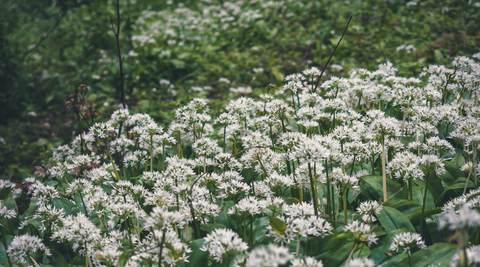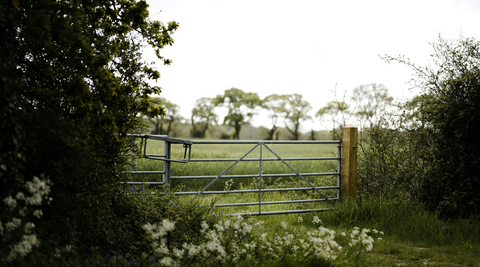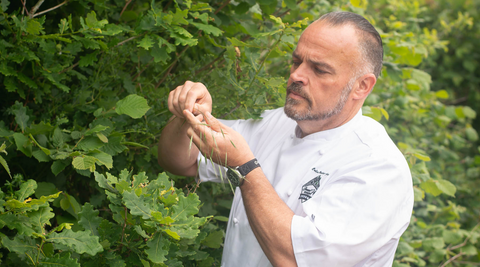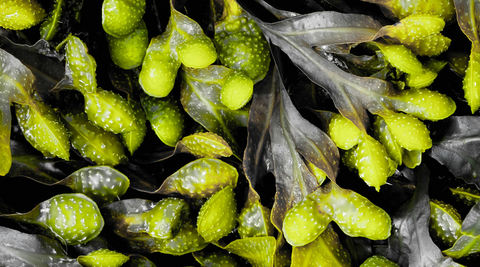Welcome spring with a month dedicated to celebrating the wild food on our doorsteps
Early spring is an exciting time in the countryside; spring lambs are in the fields, new crops are being nurtured, and the calving season is keeping our farmers busy. But away from the tended fields, another crop is blossoming, one that is free to anyone who has the will to explore.

For many of us, our experiences of foraging reside in childhood memories of blackberry picking to make jams or pudding, but there is a whole pantry of wild edibles out there to be discovered. With a growing awareness of where our food comes from and a shift towards seasonal eating, wild foraged ingredients are increasingly found on restaurant menus and championed by chefs. The growth of organic farming is proof of our collective desire to live more naturally in harmony with nature, and foraging offers a direct connection to the earth. By gathering wild foods, we reconnect with the land in a deeply meaningful way.
Cultures around the world have long practised the art of foraging and eating seasonally, first out of necessity borne of a pre-industrialised food landscape and then from a love of native ingredients and the preservation of their cultural heritage that keeps traditional recipes alive.

In the UK, pagan customs saw wild food gathered for food, religious ritual, and medicinal purposes according to the turning of the Wheel Of The Year, which marks the seasonal solstices and equinoxes. In addition, foraging played an important part in the ancient practice of hedge witchery. Cunning women, or hedge witches, gathered seasonal herbs and berries for herbal medicine and folk magic. They believed that hedges were a liminal space where communion with spiritual beings could take place, so placed great importance on their harvest.
Walking the wild spaces of Devon, you can be easily transported back to our pagan roots and sense the profound connection to nature that has been proven to enhance our mental well-being. Our woods, fields, moorland, estuaries, and coastal paths are bursting with a wild harvest waiting to be discovered.

On the fringes of Dartmoor National Park, lies Ground Up Cookery School, a family run business championing local, seasonal and foraged ingredients. They run cookery courses with a focus on wild food, and teach how to identify and cook seasonal fruit, nuts, leaves, roots and fungi.
We spoke with the man behind Ground Up Cookery School, professional chef Colin Wheeler-James about his love for seasonal ingredients:
“Eating seasonally is important for a number of reasons. Firstly, by incorporating wild seasonal foods into your diet, you are eating locally, reducing food miles and your impact on the planet's resources. You are also eating foods in their prime, they have not been forced or picked and stored before ripe and transported long distances, so they are more nutrient dense with better flavour”
Colin is particularly passionate about the wild food that grows in abundance in the fertile Devon countryside.
“Devon has everything a Forager could ask for, the swathes of coastline offer varied habitat that hosts amazing diversity. The thermic effect of the sea also helps plants become available earlier in the season while in reverse the vast expanse of Dartmoor cools the surrounding area extending the season of many species. Take wild garlic for example. I can be picking that near the coast in mid February and still be harvesting long into April in the lanes around Okehampton.
Add to that the beautiful ancient woodlands, riverbanks and hedges and you have fantastic diversity to discover.”

Colin wants everyone to discover this love of foraging and seasonal eating:
“At this time of year, you can find a plethora of wild foods and all beautiful and tender as they begin to add new growth in the lengthening days and slightly warmer temperatures. Wild Garlic, Nettles, Dandelions, Cleavers, Gorse, Rosebay Willowherb shoots, Scarlet Elf Cup and Jelly Ear fungus, Ground Ivy, Alexanders and Pennywort are all showing well in our fields and hedgerows. Nearer to the coast Sea Beet, Wild Asparagus, Sea Radish, Purslane, Sea Arrow Grass are all looking vibrant and sending up new growth. Spring is also the perfect time to harvest seaweed which is at its best at this time of year. Wracks, Kelp, Oarweed, Gutweed, Sea Lettuce, Dulse and Pepper Dulse are all particularly good in spring.”

There are things Colin recommends you do before heading outside:
“Do your research, there are many great social media sites, books and websites promoting sustainable foraging. Begin by learning more about the edible plants you already know before moving onto new species. There are several very toxic plants and fungi in the UK but it is possible to learn them. Don’t let that put you off but make sure you learn properly and forage responsibly, never assume.”
If you want to explore more, book a course at Ground Up Cookery School or check out our recommended books for foragers.
River Cottage Hedgerow, John Wright : a great all-rounder for the occasional forager
Wild Food: A Complete Guide For Foragers, Roger Phillips : for the more serious forager, from the king of fungi foraging
Food For Free, Richard Mabey : an introductory pocket guide for beginners
This month, we will be exploring some of the season’s most accessible and tasty foraged ingredients to bring you some exciting recipes to discover.
Featuring tips from Colin, and an exciting guest recipe from a local organic drinks company, we have lots of ways to explore the season. Stay tuned!




